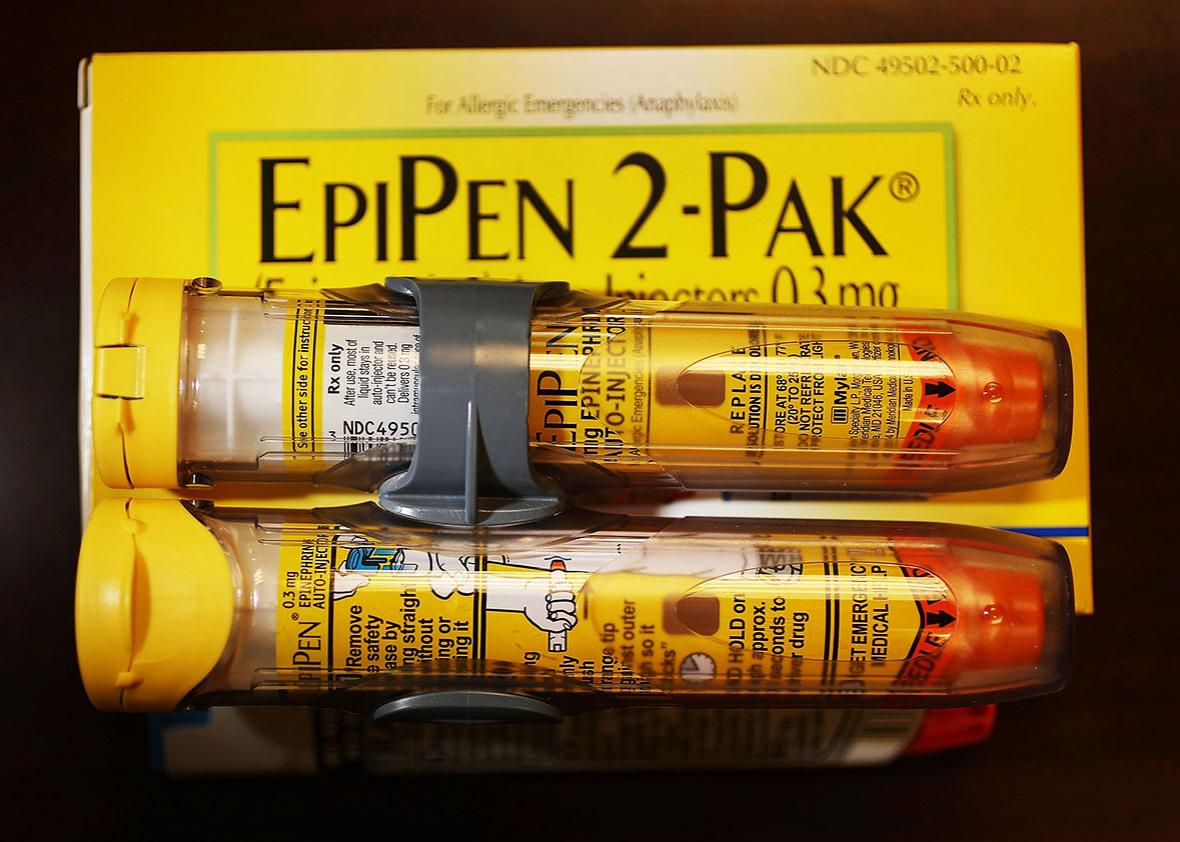EpiPens, devices commonly used to deliver the epinephrine necessary to keep airways open during severe allergic reactions, particularly in children, are ridiculously overpriced. Outrage over the prices was widely reported this summer (including by Slate), and it was determined that one of the factors leading to the high prices was a lack of competition and generic alternatives.
This week, pharmacy chain CVS announced its attempt to change that—it will start stocking a generic version of Adrenaclick that costs just 17 percent as much as an EpiPen, according to reporting by the Huffington Post.
The generic Adrenaclick will cost $109.99 for two doses, compared with $649.99 for the same amount of drug in an EpiPen. That’s good news, both for financial and safety reasons: STAT reported last year that some parents and institutions had begun filling up syringes with epinephrine as a cost-cutting measure, a DIY solution that could pose great risk to the children who may have eventually needed injections. A more affordable alternative will help ensure safer epinephrine injections.
That’s assuming, though, that the people who need these devices know exactly what to ask for when they’re sitting in their doctors’ offices. Otherwise, they’ll still be stuck with the overpriced product. Here’s why: The mechanism by which Adrenaclick injects the drug is slightly different from EpiPen’s mechanism, so the Food and Drug Administration has ruled that the two are not therapeutically equivalent. That distinction is important because it means a prescription for an EpiPen cannot be filled with Adrenaclick. If you want the cheaper option, you have to have an Adrenaclick prescription.
The distinction between the two is quite easy to miss. EpiPen is basically the Kleenex of epinephrine delivery—it’s a brand name that has become synonymous with the thing itself. Consumers would have to know that there was a distinction, know which prescription would get them the cheaper option, and have the wherewithal to request that their doctors write them a prescription for the correct one. That’s a heavy ask to make of the general public.
One of the major problems with American health care in general is how much onus it puts on the patient to make the right decisions (patients who, in the current paradigm, are also customers and consumers). Most consumers do not have time to do research before every purchase they make, nor should they have to. Many might not even know there’s a decision to be made, or they may not realize they need to head into a doctor’s office with specific requests. (Isn’t that what doctors are for, telling you what you should do?) And the consumers who have the least time or resources to explore all their treatment options are often the ones who need the cost savings the most.
CVS’s move to carry generic Adrenaclick is a good one and has the potential to help people who had been struggling to afford EpiPens. But this is one solution that also serves to highlight other problems and the vast amount of work left to be done in the field of American health care.
